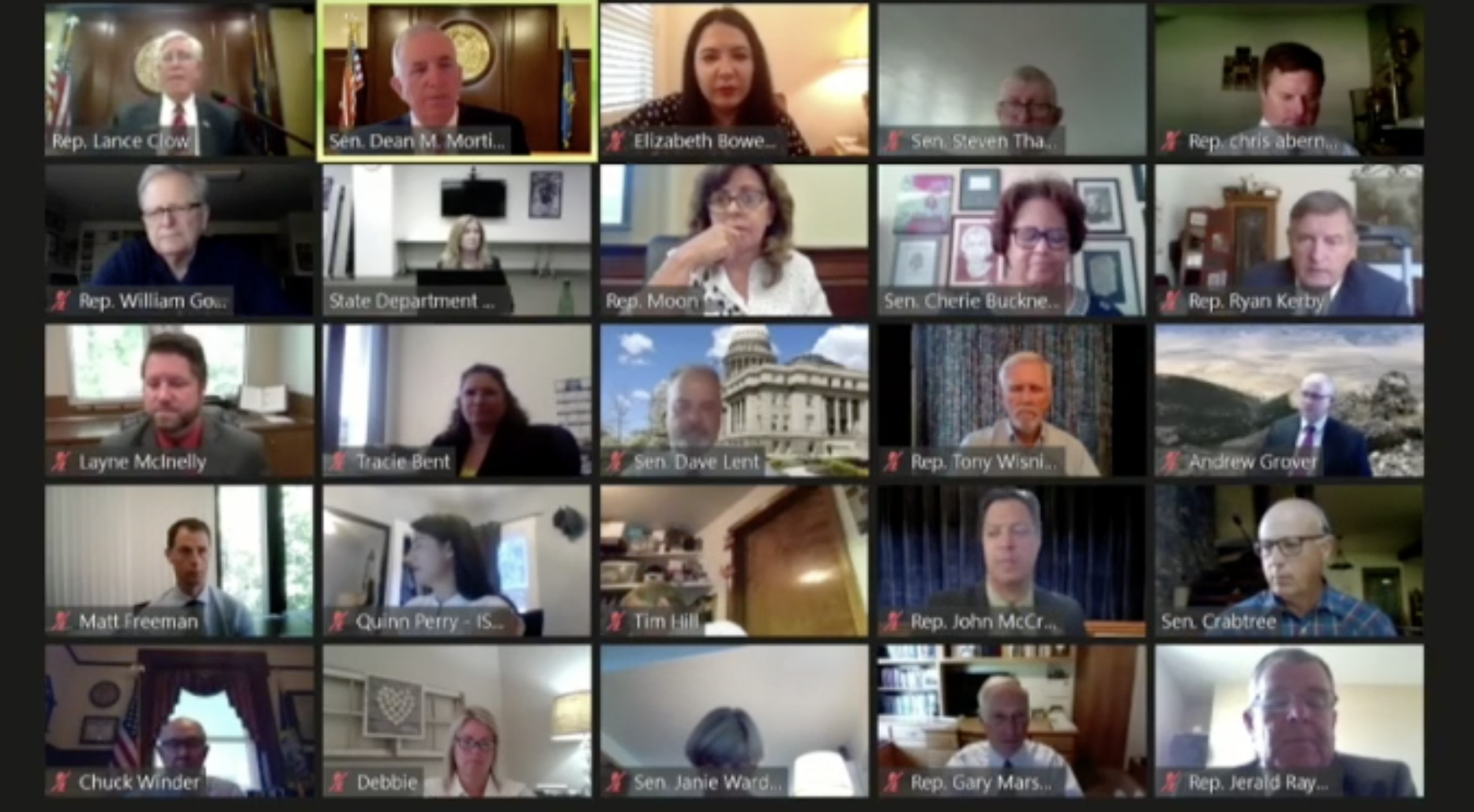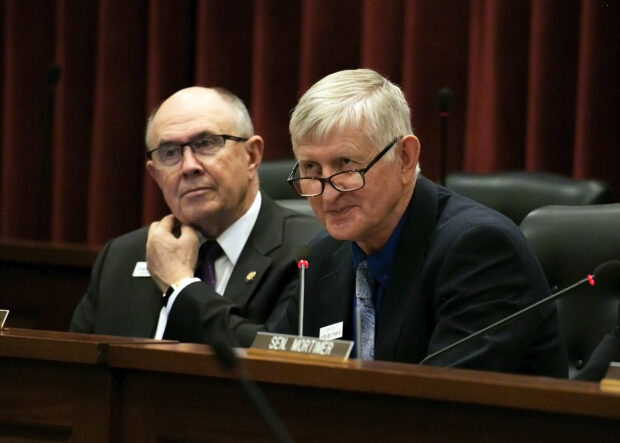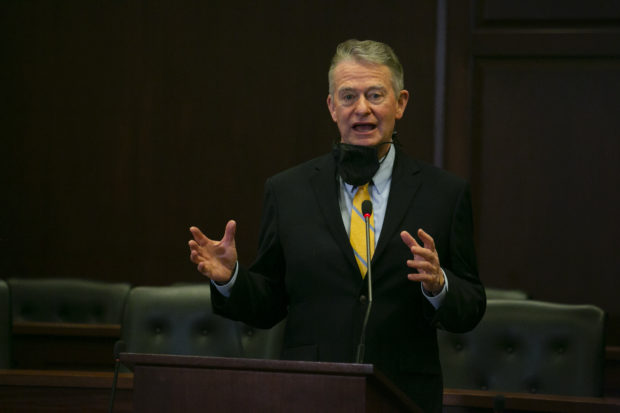
Gov. Brad Little again said Tuesday that he expects Idaho schools to reopen in the fall, but some legislators took a more pessimistic view of the situation.
As a House-Senate education “working group” met for the first time Tuesday morning, one prominent senator said he’s worried schools won’t be able to reopen. Lawmakers spent much of their first meeting talking about thorny reopening issues: teacher retention, liability concerns and funding schools that offer a mix of face-to-face and online learning.
Education committees begin their summer work
Meeting via Zoom — with only a couple of lawmakers physically in the Statehouse — the working group took no votes and discussed no legislation. But during the two-hour meeting, lawmakers got an overview of the questions clouding a reopen during the continuing coronavirus pandemic.
Idaho Education Association President Layne McInelly predicted the pandemic could exacerbate the state’s teaching shortage. The fear of the novel virus could prompt some teachers to retire early. Other teachers — who feel their profession has been devalued for years — might simply walk away. “They are essential, but they are not expendable,” McInelly told lawmakers.
Two retired educators took the comments as a call to action. Sen. Janie Ward-Engelking, D-Boise, suggested the state put some of its federal coronavirus stimulus money into “heroes pay” for educators on the front lines. Rep. Ryan Kerby, R-New Plymouth, suggested providing emergency credentials for new teachers — an idea that the State Department of Education said could be doable.
“We kind of need an all-hands-on-deck approach to this,” Kerby said.
The liability issue could come up even sooner, perhaps in a special legislative session before the 2021 session convenes in January.
Kerby and other lawmakers are working on bills protecting schools from a lawsuit, if a coronavirus case is linked to a campus. Little has said he is open to convening a special session to take up civil liability issues. But Senate Majority Leader Chuck Winder, R-Boise, said Little has told him he wants to see the bill first, and have assurances that it will pass both houses.
School leaders want to reopen, said Andy Grover, executive director of the Idaho Association of School Administrators, but the specter of a lawsuit has cast a cloud over the process. “It just put a fear into districts, (who were) thinking, ‘What are we going to get sued for now?’”

While everyone at the virtual meeting expressed a desire to reopen schools, Sen. Steven Thayn wondered aloud about the odds.
“I’m really concerned that schools aren’t going to open in the fall,” said Thayn, R-Emmett.
Thayn challenged colleagues to think differently about funding schools during the crisis — and put the needs of students and parents ahead of funding the educational institutions as is. He said it’s tough to justify maintaining funding for buildings that are closed, and funding a status quo “if 20 to 30 percent of the kids are home and not learning.”
Thayn serves as vice chairman of the Senate Education Committee — and if he is re-elected in November, he could be in line to head the committee in 2021. Current chairman Dean Mortimer did not seek re-election, although the Idaho Falls Republican is co-chairing the working group.
The working group could reconvene next week.
Little: ‘This is a big deal’
Minutes after the working group completed its business for the day, Little and Department of Health and Welfare Director Dave Jeppesen fielded questions during a weekly town hall teleconference sponsored by AARP Idaho.

Education came up briefly. Little assured one caller that the state has the money, including federal coronavirus aid, to keep schools sanitary and safe. And he repeated his expectation that schools will reopen in the fall — with a caveat. Little said he fully supported closing schools in Blaine County this spring, when rapid infection rates swamped the county’s health care system.
“That will be no different in the fall if we get into that situation,” Little said.
Several callers seemed skeptical about the severity of the outbreak.
Two callers focused on the state’s relatively low coronavirus death rate. Less than 1 percent of Idaho’s coronavirus cases have proven fatal, but as case numbers have skyrocketed since June, the death rate is also creeping upward.
A caller from Payette questioned the accuracy of tests — citing what she admitted was scuttlebutt.
“A doctor took some tests home and tested himself, his cat, his dog and his goat,” she said. “Three out of four came back positive. And this is all just hearsay; I have no evidence that these are true.”
(The Centers for Disease Control says “cats, dogs, and a few other types of animals” can be infected with coronavirus.)
A called from Nampa questioned the severity of the coronavirus, relative to the flu or the common cold. “How bad is this virus, really?” he asked. “This virus, I don’t know anything about it.”
Little urged Idahoans to stay the course by wearing masks and practicing social distancing. The virus, he said, casts a cloud over rebuilding Idaho’s economy and keeping schools open.
“This is a big deal,” he said.
